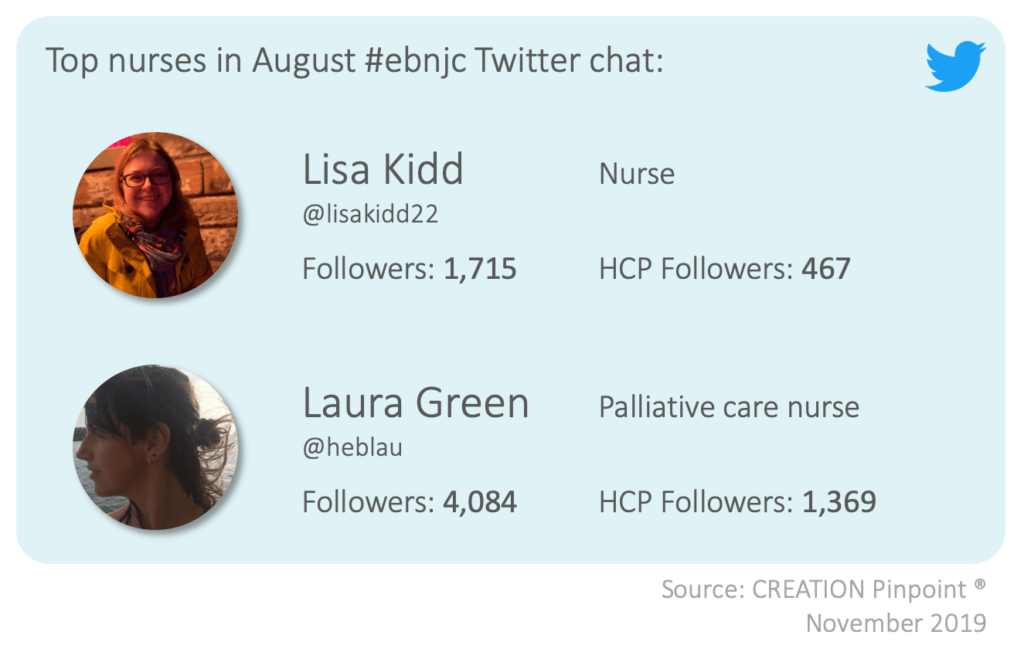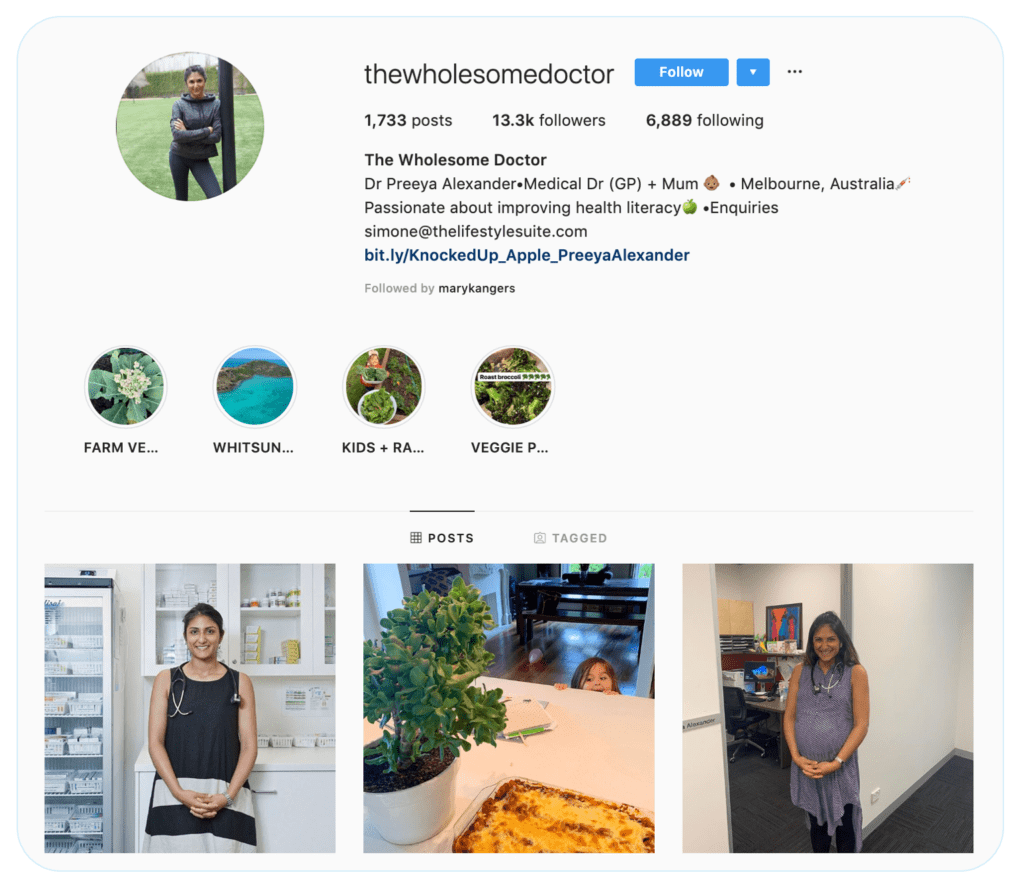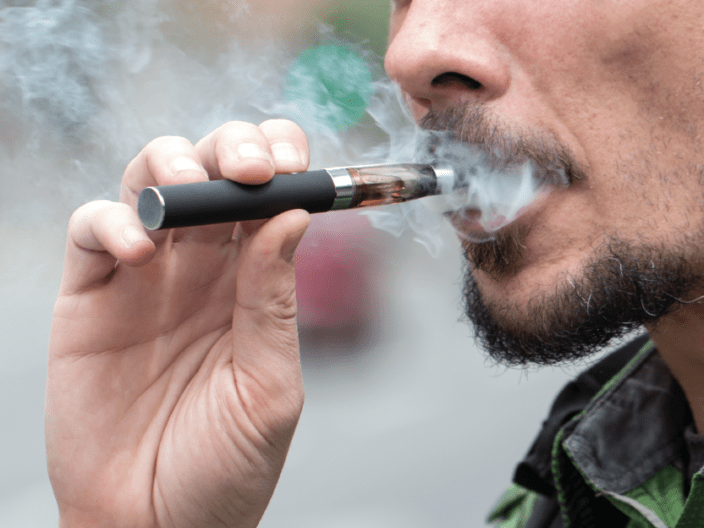This post was first published as part of our ongoing #WhatHCPsThink series on pharmaphorum.com
If you are an avid social media user or someone curious about social media, have you ever wondered if individuals behave differently on different social media platforms?
Twitter, Instagram and Facebook are among the most used social media platforms globally. Twitter has over 330 million monthly active users (MAUs), while Instagram has over 1 billion MAUs and Facebook has over 2.4 billion MAUs. We have seen a rise in the use of social media by doctors and HCPs, in particular on Twitter, with growth year on year to over 640,000 HCPs on Twitter globally. Other platforms such as forums are also widely used, with Reddit having over 1 684 million visitors monthly. Whichever site you are on you may be following your favourite celebrity doctor, for example Dr Kevin Pho on Twitter, Dr Joshua Worich on Instagram and Dr. Wendy Sue Swanson on Facebook.
CREATION Pinpoint® distils conversations online to just the HCP voice, currently tracking over 1.9 million HCPs worldwide. From our experience of analysing these conversations we have identified four HCP digital behaviours across Twitter, Instagram, Facebook and Reddit.
Four digital behaviours when HCPs use social media:
- HCPs use social media to form communities for sharing and learning from each other
- HCPs use social media to engage with patients and educate the public
- HCPs use social media to provide the public a window into their day-to-day lives
- HCPs use social media to curate and share developments in their field
1. HCPs use social media to form communities for sharing and learning from each other
Twitter chats are one way that HCPs are creating communities to share and learn from each other. A Twitter chat is a conversation event that happens during a specified time and is centered around a hashtag so that individuals’ responses can be followed. Twitter chats can be seen almost as a forum conversation happening on Twitter, where a question is asked and individuals respond to the question providing their insight, experience or ideas. A recent Twitter chat that CREATION.co analysed was the #PancChat conversation on 21 August 2019. This monthly event is hosted by a patient advocacy group, Let’s Win! Pancreatic Cancer (Let’s Win! PC). The chat was originally set up in collaboration with Celgene in 2016, to engage individuals around the latest pancreatic cancer topics.
Discussing #pancreatic #cancer with @letswinpc, @Celgene, @PanCAN 4/26 8pm EST #PancChat #AACR16 @LFPancreaticCan pic.twitter.com/mqn51QOmdm
— Dr. Allyson Ocean (@drallysonocean) April 18, 2016
We are seeing Twitter chats such as #PancChat becoming more commonplace for HCPs to engage in, providing an opportunity for HCPs across the world to learn and encourage each other. Twitter journal clubs have also set up Twitter chats which run like other journal club discussion groups: an article is read by HCPs followed by questions relating to the research. An evidence based nursing journal club, run by BMJ for Nursing, regularly hosts journal club discussions from it’s own dedicated Twitter account using #ebnjc. On 9 August this year BMJ for Nursing hosted a Twitter chat in response to a blog that BMJ posted, to discuss how nurses can ensure palliative care for all. Nurses Lisa Kidd, Laura Green and Roberta Heale were among the HCPs who engaged in this conversation sharing their experiences and linking to research.
STARTING NOW!! Twitter Chat with Laura Green @heblau and Roberta Heale @robertaheale from EBN to discuss how nurses can ensure Palliative Care for all. #ebnjchttps://t.co/jjXqWpTkTS
— EBNursingBMJ (@EBNursingBMJ) October 9, 2019

Reddit, a social news aggregation, web content rating, and discussion website is also used by HCPs to engage in conversation with each other. Communities, called subreddits, are created around specific topics or HCP role, such as the pharmacist subreddit. Here HCPs ask each other questions and share their learnings. Recently, pharmacists engaged in a conversation about opioids and benzodiazepenes with the thread initiator asking for peers’ experiences and insights about using these drugs.
Hot Topic: Opioids and Benzodiazepenes
byu/eat-meowt inPharmacist
2. HCPs use social media to engage with patients and educate the public
Selfies in scrubs and pictures of hospitals abound on the profiles of HCPs on Instagram. HCPs are taking a hold of trends among common fashion and beauty influencer profiles, posting content with medical tips and guides, to combat the growing trend of health misinformation online. At CREATION.co we see that HCPs are engaging with patients on Instagram more than on other social media platforms.

Dr Joshua Wolrich, an NHS surgical doctor, uses Instagram to fight weight stigma and provide medical advice on nutrition and weight using the hashtag #nutribollocks. He often tackles the tough nutrition related conversations people are having online as well as offline. Wolrich’s posts cover topics relating to calories, different diet plans, weight, BMI and eating disorders.
https://www.instagram.com/p/B4GEJIBhXs1/
Many of these Instagram HCPs provide sessions for the public to ask them questions to which they respond. These question and answer sessions are managed through either their posts, using the comments section, or on their Instagram stories. The approach of a Romanian surgeon, Dr Mihail Pautov, is to share a selfie and in the description ask the public for their medical questions in the comments below.
https://www.instagram.com/p/B1GbhkECrmY/
On Facebook, HCPs often share blogs, videos and articles covering topics from general medicine to health administration. For HCPs, Facebook allows for long form content, compared to Twitter for example, and sharing of interesting articles or links in a controlled group or page.
Dr Kevin Pho, an internal medicine physician, is present on a number of social media sites and believes that social media can be an effective method to provide patients with trusted sources of information. One example of an HCP who is using Facebook to provide patients with information is Dr Wendy Sue Swanson, who uses her account to provide relevant and practical guidance to parents as well as to support the work of other HCPs such as paediatricians. Dr Wendy, a paediatrician herself, covers topics from vaccination to supplements such as vitamins and shares information on her Facebook page through videos, long form posts and links to her blog.
3. HCPs use social media to provide the public a window into their day-to-day lives
In a world where HCPs are sometimes placed on a pedestal, HCPs use Instagram, and other platforms, to share their activities through images of their day-to-day and provide a window into the joys and challenges of being a medical professional. Dr Daniel Choi, a spine surgeon, shares in the comments of his images the surgical procedures he has done as well as the challenges he has faced in his profession.
https://www.instagram.com/p/B3QQV75BqXn/
On Twitter, HCPs are increasingly sharing their daily experiences and interactions with patients as well as peers. One such HCP, Dr Kimberly Manning, uses her account to relate meaningful conversations she has had with those she has come in contact with during her work day showing the personal and emotional side of her work.
1/
Me: "Are you from Georgia?"
Her: "No. I'm from Alabama."
Me: "Really? Where 'bout?"
Her: "Tuskegee."
Me: "No way!"
Her: "Yes indeed."
Me: *lean forward and pluck my lapel for her to see my Booker T. Washington pin**smiling* pic.twitter.com/4SeOLLhVuK
— Kimberly D. Manning, MD (@gradydoctor) November 8, 2019
4. HCPs use social media to curate and share developments in their field
On Facebook we see HCPs sharing developments in their field and interesting news on their publically open pages. Dr David Ludwig, an endocrinologist, shares recent medical articles and research in which his HCP peers respond, ask questions and engage in conversation with each other in relation to that post.
This behaviour is also seen widely on Twitter, where trial and study data as well as medical approvals are shared and discussed by HCPs. At CREATION.co we have been tracking this behaviour on Twitter in a number of areas. A recent article analysed the conversations HCPs were having about the European Medicine Agency (EMA) approvals. HCPs were excited about the approval of Bayer’s Vitrakvi, the first approved tumour agnostic therapy in the EU.
Finally we’ve the first tumor agnostic therapy in EU approved for #TRKfusioncancer. #Thyroidcancer is the second most frequent tumor with NTRK fusions!! We must look for them!! New data expected at @myESMO @GrupoGetne @aecat_es https://t.co/LmbF4okMIz
— Jaume Capdevila (@Ja_Capdevila) September 26, 2019
Dr Shalaan Beg, a gastrointestinal oncologist, shares and retweets study and trial results happening within the therapy area from medical journals, such as the Journal of American Medical Association, and medical organisations, such as the UTSW Simmons Comprehensive Cancer Center. Dr Beg also shares results from presentations at congress or conferences often with an image of the slides presented.
Pembro/lenvatinib w 46% RR in untreated HCC.#ESMO19
Will be great if combination TKI/IO will hold true in HCC pic.twitter.com/GGCW44thZf— Shaalan Beg MD MBA FASCO (@ShaalanBeg) September 29, 2019
How does knowing HCPs digital behaviours help you?
This data provides intelligence on the type and source of content HCPs share, what campaigns or events they are engaging in as well as how they prefer to engage online. Identifying and understanding the behaviours of HCPs online provides an opportunity for healthcare organisations and pharmaceutical companies to tailor content strategies and engagement programmes to the different social media platforms HCPs are using, so that they can truly add value to the HCP conversation.
HCPs behaviours, needs and interests are changing rapidly in the online space; how will you grab hold of this data to transform your planning?




